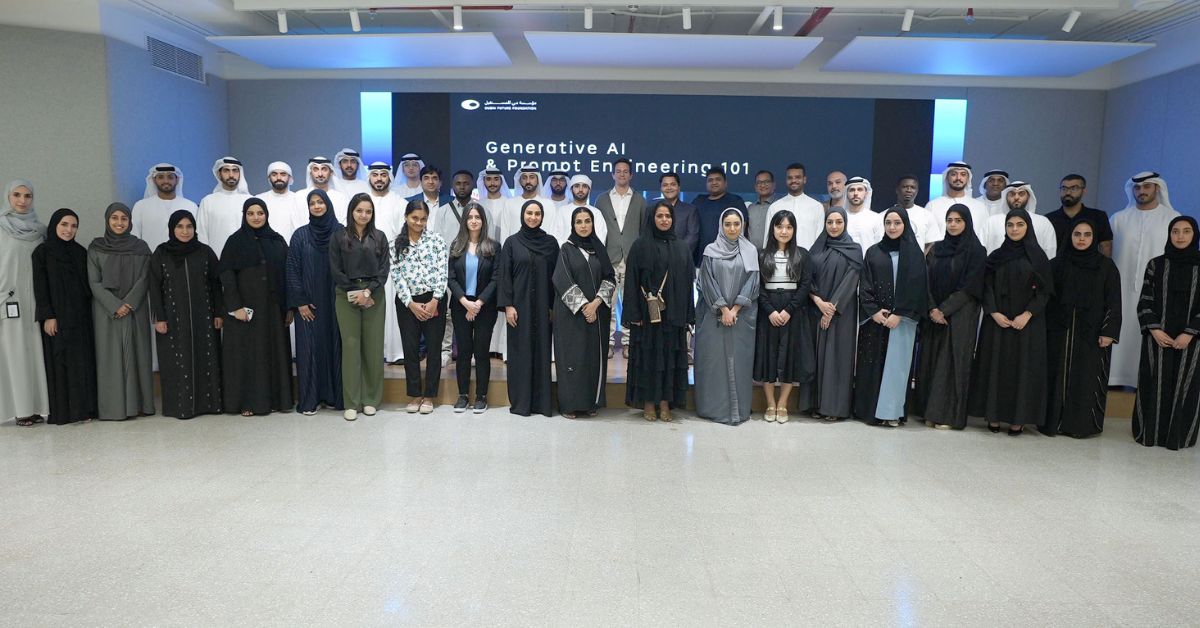DUBAI, UAE — With the growing use of artificial intelligence (AI), Chief Information Security Officers (CISOs) play a pivotal role in its implementation and adoption. They must anticipate the risks tied to AI content creation and AI-assisted security threats. By adhering to key best practices, we can safely integrate advanced AI technologies into the enterprise.
AI’s Rapid Growth The rise of ChatGPT has ignited immense interest in generative AI, with numerous businesses integrating it enterprise-wide. AI technology is proliferating at an unprecedented pace, surpassing any other technology I’ve observed.
Generative AI offers several compelling applications for enterprises:
- Content Creation: Tools like ChatGPT can aid content creators in brainstorming, outlining, and drafting, saving significant time and effort.
- Learning and Education: Well-trained AI tools can swiftly comprehend new and intricate subjects, summarizing vast information, answering queries, and simplifying complex concepts.
- Coding Support: Solutions such as GitHub Copilot and OpenAI’s API Service enable developers to code more efficiently and pinpoint errors.
- Product and Operations Support: AI tools can streamline the preparation of routine reports and notifications, like bug resolutions.
Challenges Ahead However, challenges persist. One concern is whether AI usage complies with laws and regulations in global markets.
Earlier this year, OpenAI temporarily suspended ChatGPT in Italy following accusations from the Italian Data Protection Authority of unauthorized user data collection. German regulators are probing ChatGPT’s compliance with the European General Data Protection Regulation (GDPR). In May, the European Parliament moved closer to establishing the inaugural rules on AI usage.
Another hurdle is data collection and unintentional disclosure of personal or proprietary details. Companies must protect their confidential data and ensure they aren’t inadvertently copying from others using similar tools. Instances of intellectual property being input into public generative AI systems have surfaced, potentially jeopardizing a company’s patent defense. One AI-driven transcription service duplicates materials presented in monitored Zoom calls.
Furthermore, AI-powered cyberattack tools can rapidly adapt tactics, learning from our reactions. We’ve witnessed sophisticated AI-driven phishing attacks that mimic individuals in text and voice. An AI tool, PassGAN, has demonstrated superior efficiency in password cracking compared to traditional methods.
CISOs and AI As CISOs, we guide leaders in crafting strategies that encompass legal, ethical, and operational considerations.
When responsibly deployed with robust governance, generative AI offers businesses advantages from automation to optimization.
Crafting a Comprehensive AI Strategy New technologies like generative AI bring both opportunities and risks. A holistic AI strategy ensures privacy, security, and compliance, considering:
- Beneficial AI use cases.
- Resources required for successful AI deployment.
- A governance framework to safeguard customer data and ensure global regulatory and copyright compliance.
- Evaluating AI’s impact on employees and customers.
After assessing generative AI use cases, a governance framework for services like ChatGPT is essential. This framework should dictate data collection and retention rules. Policies should address bias risks, potential system misuse, and harm mitigation.
An AI strategy should also encompass the implications of AI-induced changes on employees and customers. Training can help employees grasp how these technologies alter daily operations and the evolving tactics of threat actors. Customer experience teams should evaluate how AI changes might affect service delivery.
AI and Security Establishing robust AI security standards is crucial. AI tools should be designed with adversarial resilience. This is currently a focus in labs, but real-world application against unpredictable threats is paramount, especially in military and critical infrastructure contexts.
With adversaries eyeing AI, organizations must bolster their defenses. Consider the following:
- Scrutinize software code for bugs, malware, and anomalies. Signature scans only detect known threats, while new attacks will exploit unknown methods.
- Use AI for log monitoring. Machine Learning security log analysis can identify patterns and anomalies, offering predictive intelligence and actions.
- Update cybersecurity training to address threats like AI-driven phishing and revise policies to counter AI password cracking tools.
- Continuously monitor AI advancements, including generative AI, to stay abreast of potential risks.
Preparing for the Future To remain competitive, organizations must embrace AI while mitigating associated risks. By acting now, companies can maximize AI benefits while minimizing vulnerabilities.
Gail Coury is the Senior Vice-President and Chief Information Security Officer at F5.
The opinions expressed are those of the author and may not reflect the editorial policy or an official position held by TRENDS.








